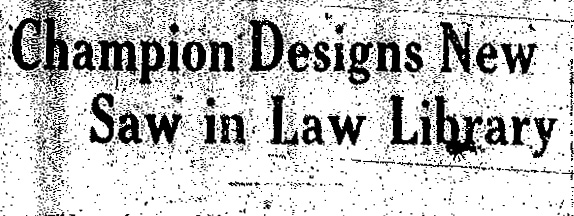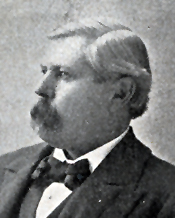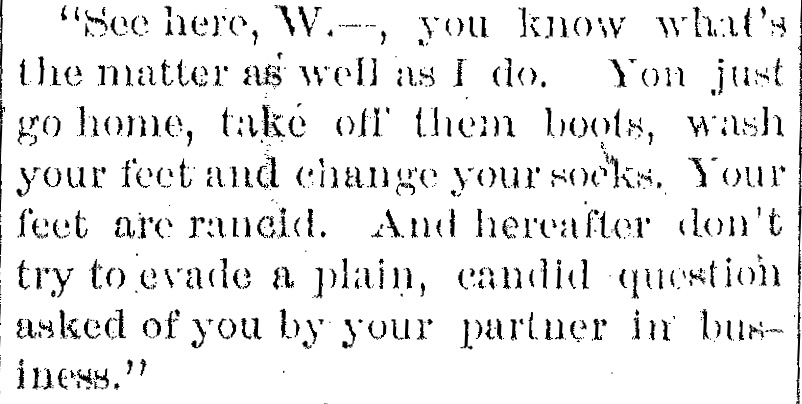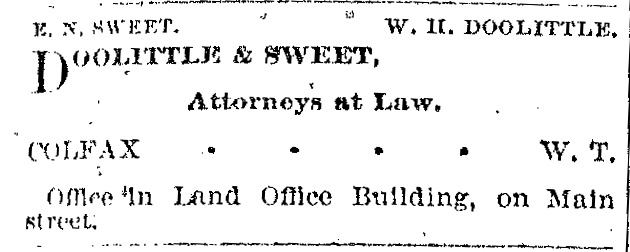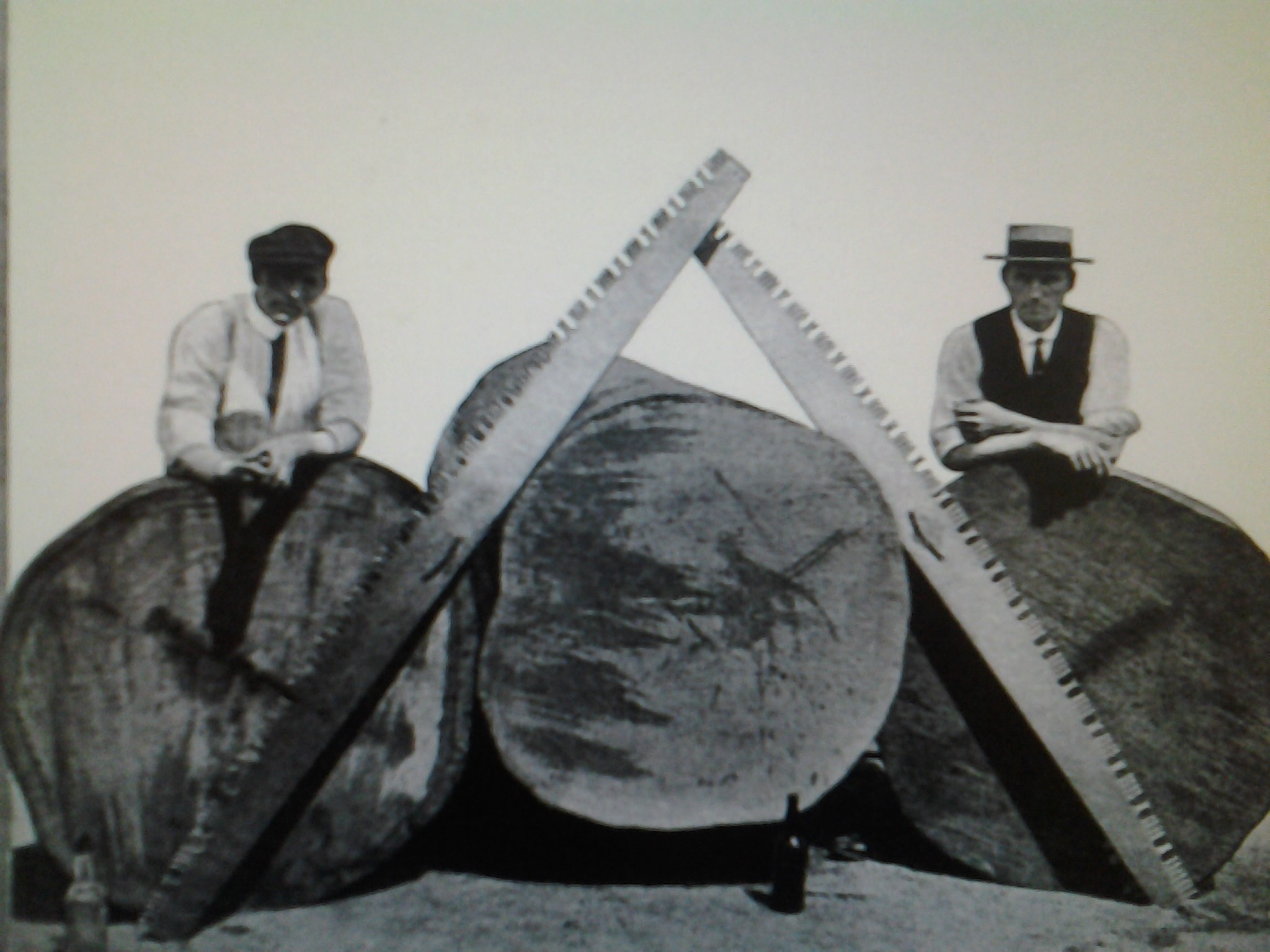 From the desk of Steve Willis, Central Library Services Program Manager of the Washington State Library:
From the desk of Steve Willis, Central Library Services Program Manager of the Washington State Library:
Naturally the word “Library” in the following headline is what first caught my eye, but as the story unfolded I knew it had to be shared as the tale of a true Washington State original.
This was found at random in The Oakville Cruiser, page 1 top of the fold, Jan. 28, 1916.
Champion Designs New Saw in Law Library
“The law library of the University of Washington may be a strange haunt in which to find the champion cross-cut sawyer of the world, but that is the winter lair of Chas. A. Newton of Oakville, junior law, crew man, football player, and undisputed champion of the saw men of the universe. And between law classes, this lawyer forester is preparing to better his own unbeaten record with the crosscut saw by designing and manufacturing what he expects will be the fastest sawing machine in existence. In the husky logger who won the world’s championship sawing contest during Shriner’s convention in Seattle last summer, few recognized the young university athlete and barrister. And if the story about the remarkable new saw he is making, down at the crew house, hadn’t leaked out his exploit in defeating the best woodsmen in the country at their favorite contest would perhaps have remained unknown at the university and the law school would not have discovered its newest celebrity.”
“Newton has handled a saw from the time when he used it to cut firewood for the kitchen stove with a little red bucksaw until the day last summer that his remarkable skill was first publicly demonstrated when he won the big sawing contest from thirteen other loggers at the Hoquiam splash, the yearly Grays Harbor celebration. There he created a sensation among the lumbermen by cutting his log of 34 inches in 4 minutes and 20 seconds, defeating Nelson Knight, a logger from near Malone, who had won the contest for the past six years.”
“Later in the summer he clinched his triumph by the exploit during Shriner’s week. The six men who contested then, and whom he defeated at Woodland park, were experts drawn from all over the timber country on this side of the Rockies. And as the west has the biggest trees, so has she the best lumbermen. Therefore the Shriners’ committee designated the winner from this sturdy band of six, ‘world’s champ.’ Europe being in no position to participate in either Olympian or sylvan games, Newton is the proud bearer of the world title.”
“It is seldom that a log sawing contest has been viewed in Seattle in the last thirty years, so the real excitement of the race is little known. When the lumberjacks hue up on a peeled fir log and, at the signal, start to saw like mad, the Poughkeepsie regatta is not half as exciting. The big log is lost to sight in the flying chips and the sawyers are hidden in a cloud of sawdust. The long saws rip back and forth across the green wood in a rending, grinding chorus and are seen only in the flashes of silver, like the oars of a racing shell. When there comes a final ripping crack, the winner emerges from the sawdust cloud, looking like ‘the scarecrow man’ in the ‘Wizard of Oz,’ but the most envied man in all the lumbering towns in the west.”
“This honor has twice fallen to Newton, and when his new saw which he is now working on is finished he will be in trim to once again pull down the laurels at the Aberdeen splash that is scheduled for early in July.”
“Newton’s new saw will be different from any other saw in existence. He has figured out a cutting edge that he says will be faster than any other present saw. His scheme is for a saw with fewer cutting teeth, more rakers and bigger gullets, weighing in all sixteen pounds, which will be a few pounds heavier than the average saw, but will give a better cut. He is now marking out the saw blank– and when he is finished it will be stamped out by the Simonds Manufacturing Co. He will then file it himself by a method which he claims has just a little bit the edge on all other systems.”
“Newton made the trip with the crew to California last year and only had three minutes more to play to make his football letter.”
“‘Rusty’ Callow hastens to say that Newton is one of the best saw pullers in the country, and the blond gentleman knows, for he tried to beat Newton twice. It’s wonderful how these lumberjacks get ahead.”
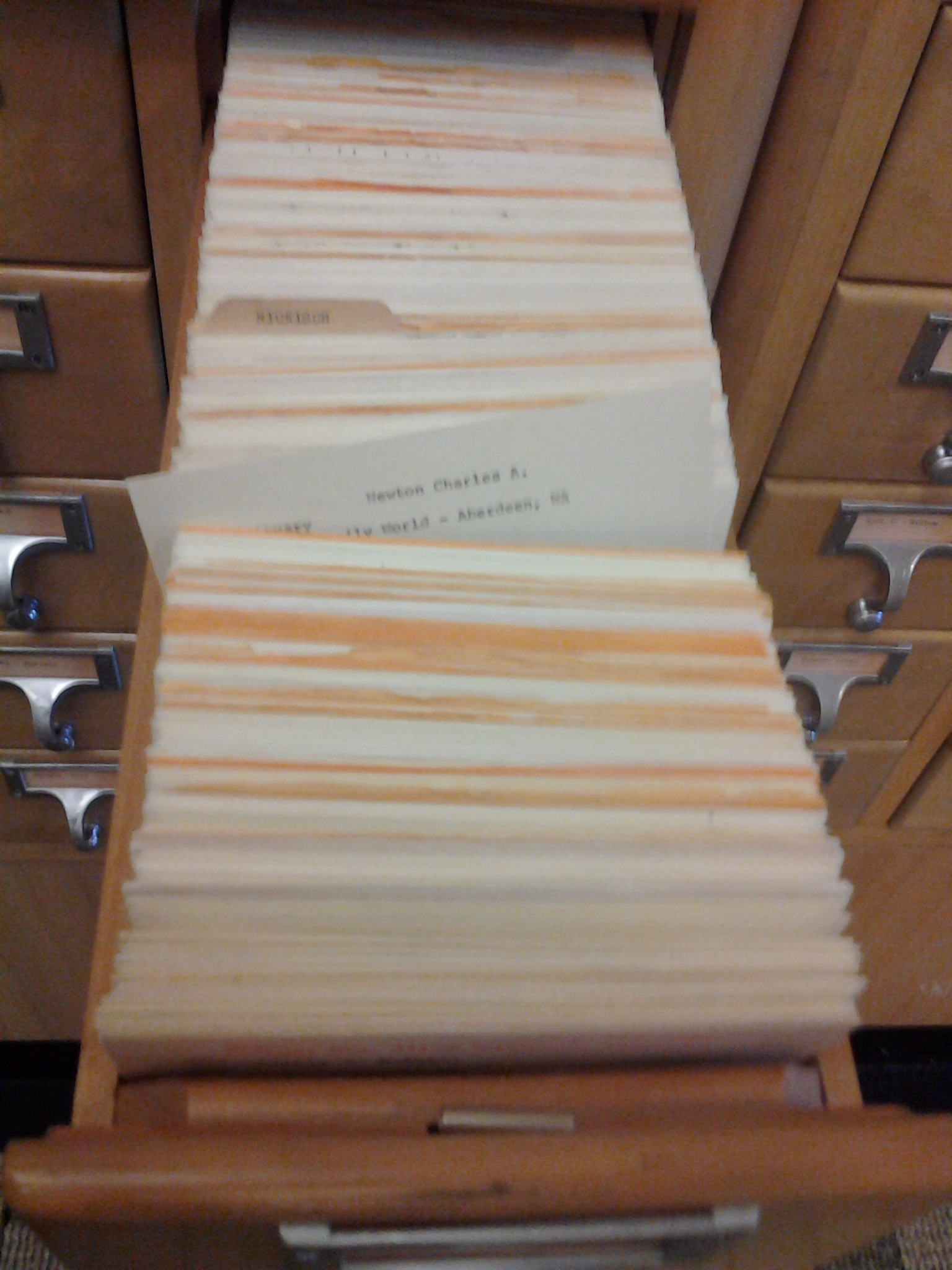
In an effort to follow up on the life and career of Mr. Newton I had to go no further than WSL’s own NW Card File. Thisfinding aid is the product of decades of indexing newspapers and books by WSL staff from the former Washington Room in the old Pritchard Building. I am happy to say we are now in the process of making this file available online. This will take a long time to input and at this point I’d like to make a pitch for any volunteers with good indexing and data entry skills to step up and serve the cause of Washington State history and culture.
Anyway.
I not only found a couple cards leading me to Mr. Newton’s obituary, but also a nice Tacoma News Tribune Sunday magazine profile in 1970 (Oct. 4) by Roland Lund and Warren Anderson.
Charles Arthur Newton was born Mar. 5, 1888 in Oakville. He served in the Army, graduated from college at Ellensburg in 1911, and taught school in Nagrom, near Yakima.
His teaching career was brief, and he enrolled in the University of Washington law school while at the same time was involved in sawing contests and school athletics, playing football and as a member of the rowing team. After he graduated he worked as an assistant coach for the Yale rowing team.
Upon returning to Washington he married Elsie Ham in 1925 and settled back home in the Oakville area, on a farm along the Chehalis River. According to the 1970 profile, “stuffy courtrooms and dusty lawbooks didn’t appeal to a hearty outdoors person raised on a riverside homestead. ‘I could make $9 a day filing saws– or logging.’ The woods would be Newton’s choice– saws– machinery– working with huge hands that only a few years before gripped an oar handle and flipped through pages of thick books.”
Mr. Newton died Aug. 26, 1982 at the Veterans Home in Retsil.






